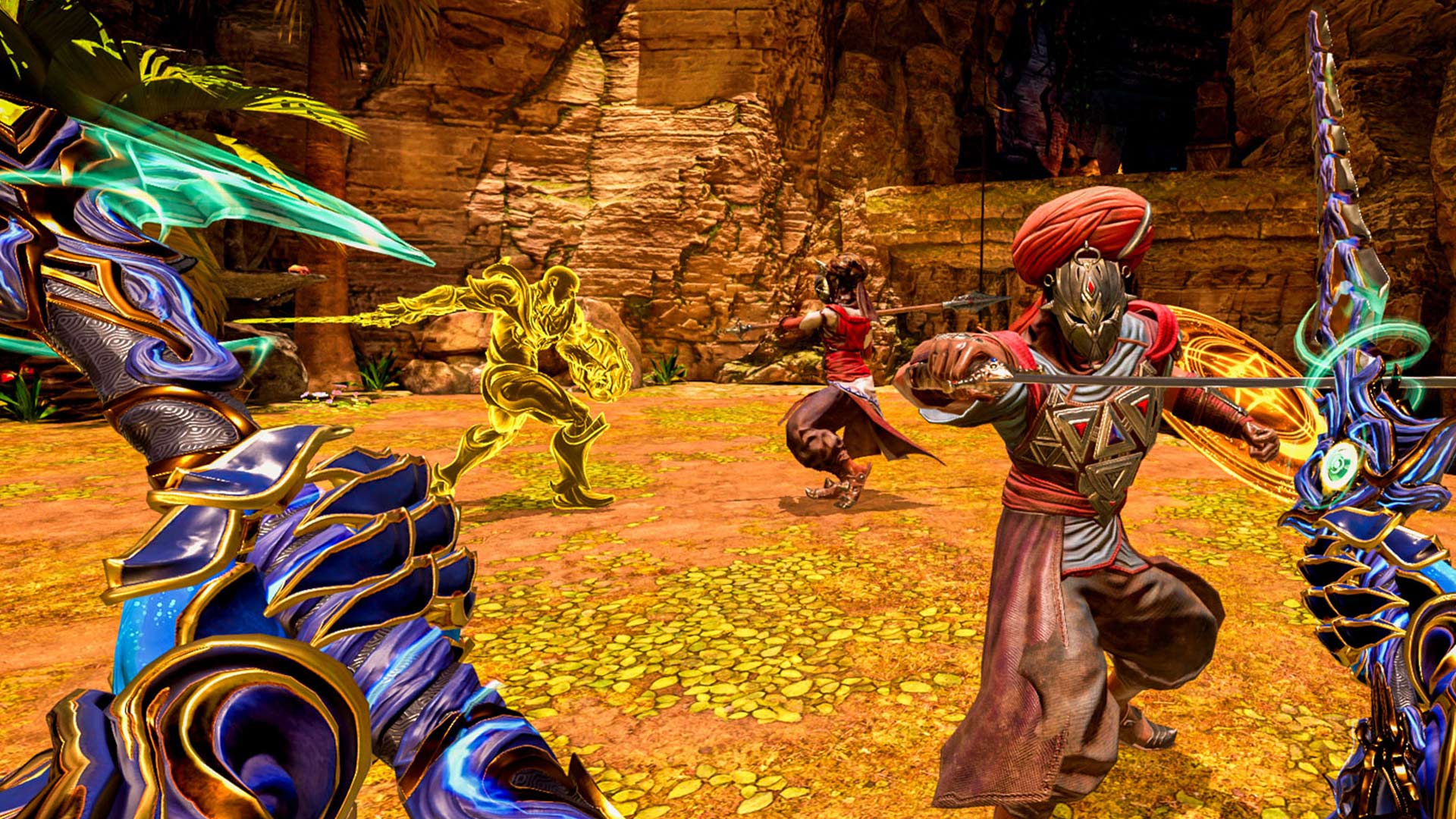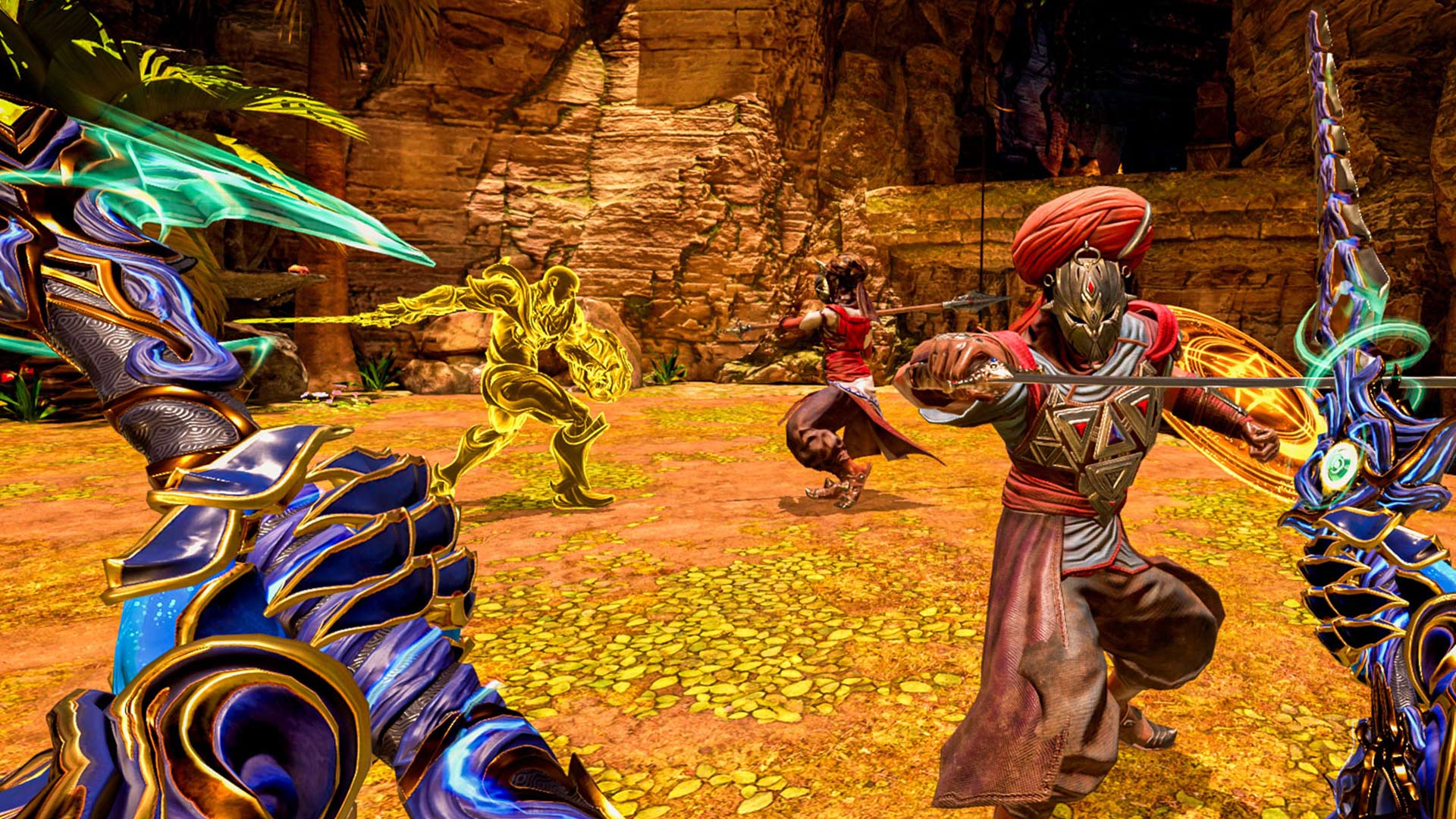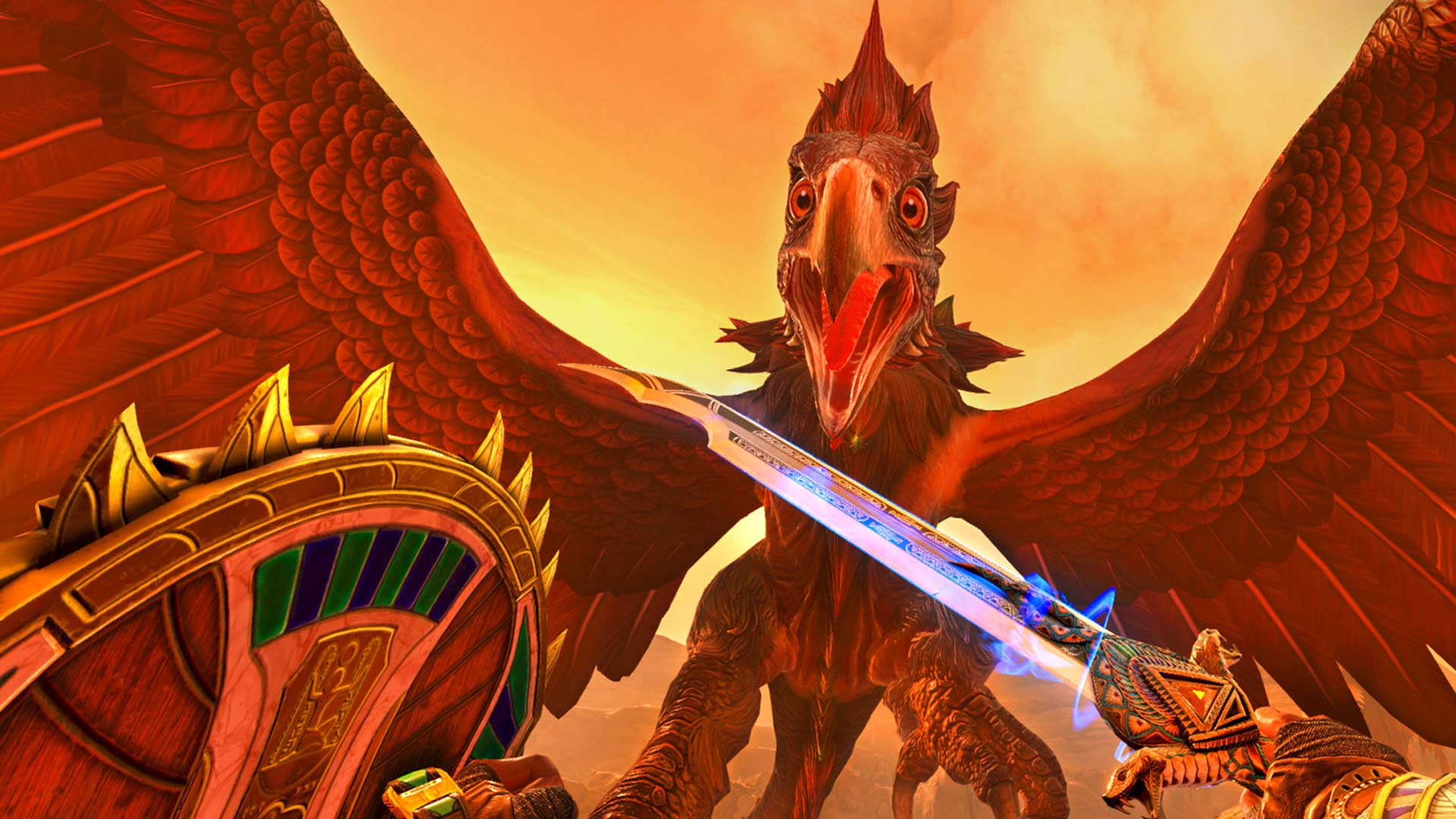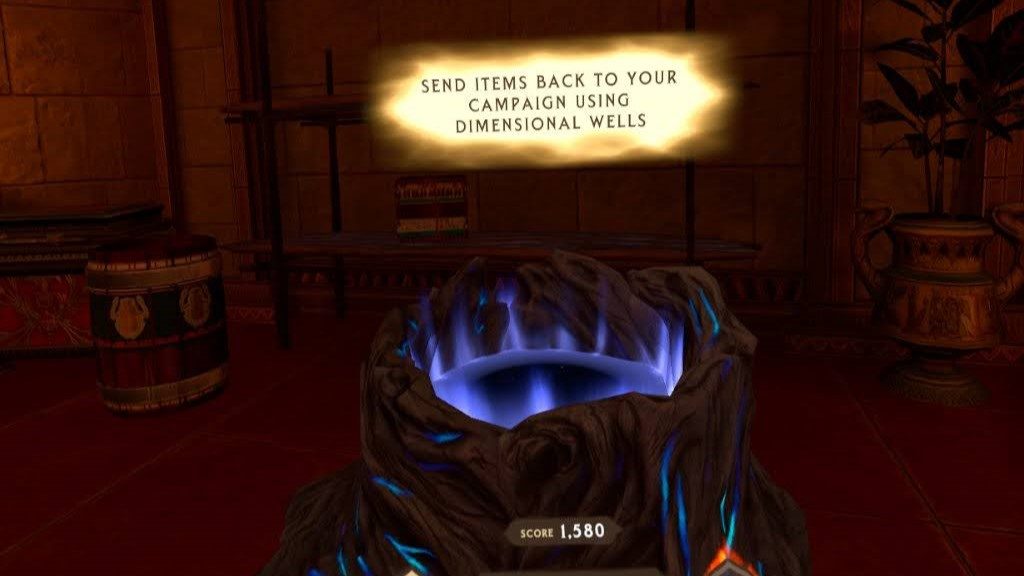
If you’re just getting into VR, chances are you haven’t played Asgard’s Wrath, the Meta-funded RPG from Sanzaru Games that came exclusive to Oculus Rift in 2019. At the time, the 30+ hour adventure was one of the first VR games of ‘AAA’ scope, basically setting the bar for what was possible in VR. Take it from us: Sanzaru has done it again, this time creating the next big benchmark to beat for games on Quest.
I’ve only played a little over eight hours of Asgard’s Wrath 2 by now, which is why this is a ‘hands-on’ and not a proper review. The sequel is touted to take 100+ hours of questing, looting, dungeon-crawling, and hack-slashing your way through what thus far doesn’t feel like a “Quest game,” a denomination that should be smaller, lower-poly, much less vibrant and reactive—if only by virtue of the humble mobile chipset within.
Ok, when I say “should”, I’m taking about what used to be the case. It’s clear developers are well along their way to cracking that particular nut and making Quest games that approach the vibrancy and detail of PC VR. And while you don’t need a hundred million dollars of development budget to reach those visual heights (see Red Matter 2 on Quest), it’s certainly required to reach the sort of scale and depth Asgard’s Wrath 2 has achieved.
Here’s how Sanzaru describes it: Awaken, Cosmic Guardian – The fate of reality lies in your hands. Travel across vast realms inhabited by the gods in pursuit of the Trickster God Loki, who threatens to undo the threads of the universe. It’s up to you to battle gods and monsters alike as you take on one of the biggest and most epic scale Action RPGs ever experienced in VR. Alongside legendary Egyptian gods, you’ll fight deadly warriors and awe-inspiring mythical creatures through physics-based, visceral combat with unique weapons and playstyles. Possess unique mortal heroes and convert loyal animals into your own warrior followers as you explore a massive, free-roaming and living world and solve mind-bending god-scale puzzles.
At least this far in my journey to beat the full-length game, Asgard’s Wrath 2 seems to have more of everything. More opportunities for dungeoning abound, as there seems to be plenty of hidden areas to clear, environmental puzzles to solve, and treasures to loot beyond those in the main quest line. Maps are also more expansive, making it feel more like an open-world game; it’s not, but it still feels impressively large.
And while there’s plenty of subsystems to bite into (more on that in the review) the one thing the sequel seems to have stepped away from was combat complexity—which I think overall is a good thing. The sequel is decidedly more approachable than the original Asgard’s Wrath, which heavily focused on a parrying system where you were it was nearly impossible to knock down enemy armor with standard strikes before getting to the soft underbelly of an enemy. You would have to parry, or block just right to leave their defenses down.

Here, you can choose to parry, or otherwise hack and slash away to slowly knock down shield defenses, which diminishes the skill ceiling somewhat to encounters (on normal settings), but still manages to provide the option if you want the most efficient way of ganking any given enemy. In the end, how you take on enemies is up to you, which feels like a nice compromise. If it feels too cheap, you’re may not be engaging with the combat system as intended. Whatever the case, combat is physical and fluid, so make room far away from TVs, monitors, children, pets, and anything else you don’t want sufficiently punched.
Besides taking on the wide array of normal enemies, there have been some genuine ‘wow’ moments thanks to some absolutely massive bosses, which so far feel like genuine encounters, and not pre-planned, end-of-level things that would otherwise feel a little too ‘gamey’. It all feels pretty epic, which is such a nice change of pace on Quest since an overwhelming majority of Quest games tend to be constricted by budget, making them shorter and smaller in scope.

Still, Asgard’s Wrath 2 relies on a lot of traditional gaming tropes, although many have been translated well enough to VR to make them feel sufficiently native. Take for example cutscenes. The adventure RPG is rightfully full is full of them, but instead of being stuck looking at dudes overacting on a virtual stage, or being warped around the environment to see different ‘camera’ angles like many games which just don’t understand our heads aren’t cameras, instead you’re viewing the action in a way that feels more natural to VR. Cutscenes almost always feature linear forward movement, like riding on the back of a bird and watching a stylized encounter in a key character’s memory.
One of the neat things about AW2 is the mass of environment puzzles, many of which require you to possess your god form and in a sort of single-player co-op guide your little mortal to the objective. This may be figuring out a hook and pulley system, or moving stones to correctly balance giant set of scales, meanwhile repossessing your mortal form to pull a lever, or jump on a platform to move forward. I’m still just getting through the meat of the game, but so far it feels sufficiently chocked full of these puzzling opportunities.
Besides the main questline, buried within the game is also a roguelike mini-game that puts your dungeoning to the test against a world leaderboard. You can choose to engage with this or not, just know that if you do you can actually grind out stuff to keep, which will make your forward progress through the game easier.

In the end, I can’t wait to dedicate more time to playing Asgard’s Wrath 2 all the way through for my final review. Where other games would have ended, or otherwise left us on a cliff hanger, it feels like this the bigger (and possibly better) sequel is just starting to peel back the layers to reveal an epic that I definitely can say is worth the hype and the time to play it. It’s also worth investing in a long cable or some battery headstrap, lest you hope to recharge your headset at least 50 times before the end credits roll.






